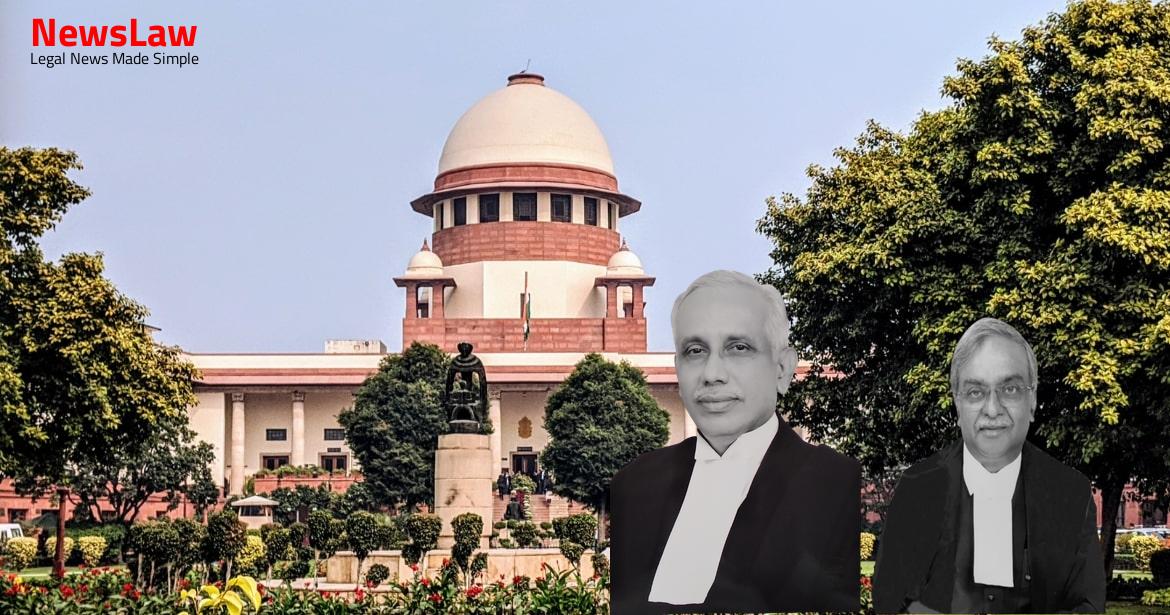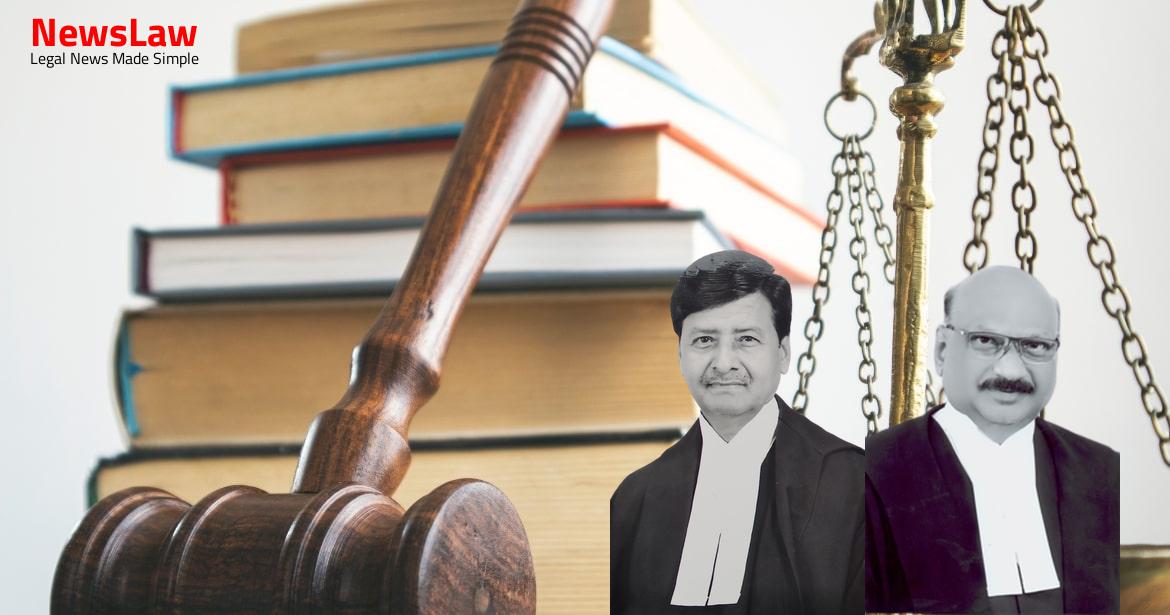In a significant ruling by the Supreme Court of India, a Special Appeal in a Suit for Specific Performance was dismissed after thorough examination of the claims and evidence presented. The High Court’s assessment of the contract between the parties highlights crucial aspects of the case. Follow this landmark judgment for insights into contract law and specific performance disputes.
Facts
- The High Court observed that the Special Appeal was filed against an order passed by the District Judge in a suit for specific performance of a contract.
- The High Court noted that the District Judge had dismissed the suit filed by the Appellant on the ground that there was no concluded contract between the parties.
- The Appellant argued that the High Court should interfere with the findings of the District Judge as the evidence on record clearly established the existence of a contract.
- The High Court considered the evidence presented and held that there was indeed a concluded contract between the parties for the sale of the property.
- The High Court set aside the order of the District Judge and directed specific performance of the contract between the parties.
- The Division Bench rejected the Appeal of the Writ Petitioner and upheld the judgment of the learned Single Judge.
- The appellant challenged the decision of the District Inspector of Schools regarding financial consent and approval for his service, which was negated due to a ban on recruitment by the Management.
- The appellant’s appointment was found to be without any financial implication, and the authority observed non-empowerment of the Institution for appointments.
- Contentions regarding the Managing Committee’s power to make ad hoc appointments during the ban period were not accepted by the Division Bench.
- The High Court found that the Management failed to follow the required procedure in appointing the appellant against a substantive vacancy.
Arguments
- Mr. Manoj Prasad, the Senior Counsel, argues that the appellant has served without remuneration since 1997.
- He contends that approval for paying the appellant’s salary should have been accorded by the authorities.
- Mr. Prasad asserts that the Allahabad High Court misunderstood the precedent set in Radha Raizada.
- The Government Counsel refers to the Uttar Pradesh Secondary Education Services Commission Procedure (Removal of Difficulties) Order, 1981, and suggests attempting to fill substantive vacancies by promotion rather than direct recruitment.
- Refers to the decision in Prabhat Kumar Sharma and Others vs. State of U.P. and Ors. where the High Court’s judgment was approved by the Court, denying financial approval for service if appointed without authorization against a substantive vacancy.
- The UP Secondary Education Services Commission and Selection Boards Act, 1982 was enacted to streamline selection processes for teachers in Government Aided Private Educational Institutions.
- The counsel argues that ad hoc appointments can be made by the Management of an Institution in available vacancies, citing the appellant’s selection and advertisement as justification for salary approval.
- During the ban period imposed by the Government, the Management of the Institution lacked the authority to make appointments against substantive vacancies.
Also Read: Avitel Post Studioz Ltd. v. HSBC: Enforcement of Foreign Arbitral Award
Analysis
- The management has limited scope to make appointments to substantive vacancies in their institutions.
- The Management must adhere to the procedure under paragraph 5 of the First Removal of Difficulties Order for ad hoc appointments.
- Section 18 of the Act of 1982 and the Removal of Difficulties Order both empower the Management to make ad hoc appointments.
- However, Section 18 does not specify the method and manner of such appointments.
- The First Removal of Difficulties Order provides the procedure for ad hoc appointments by the Management.
- Paragraph 5 of the Removal of Difficulties Order permits ad hoc appointments by direct recruitment only when vacancies cannot be filled by promotion.
- Failure to adhere to the procedure in paragraph 5 of the Removal of Difficulties Order can lead to financial disapproval by the State authorities.
- The appellant’s appointment by the Management did not follow the procedure outlined in paragraph 5 of the Removal of Difficulties Order.
- The Radha Raizada case’s ratio, approved by the Supreme Court in Prabhat Kumar Sharma, was correctly applied in this instance.
- The State should not bear the financial burden of salary for an appointment that was not made in accordance with the prescribed procedure.
- The Allahabad High Court in Radha Raizada case formulated two questions for itself regarding ad hoc appointments of teachers or Principals under the 1982 Act and the Removal of Difficulties Order.
- Criteria and procedure for ad hoc appointment of a teacher or Principal under the Act or the Removal of Difficulties Order were to be determined.
- Approval of the District Inspector of Schools or Regional Inspectors of Girls Schools was questioned for ad hoc appointments.
- Ad hoc appointments by promotion were also discussed in the context of the Removal of Difficulties Order.
- Section 18 of the Act allows for ad hoc appointment of teachers as a temporary measure when the Commission is unable to allot teachers.
- The decision to repudiate the salary claim for the appellant is justified
- Management did not follow the due process in filling up the substantive vacancy
- Appellant cannot enforce a claim for salary against the State
- State had imposed a ban on appointments during the relevant period
Also Read: Insurance Claim Repudiation due to Fire Incident: Court’s Legal Analysis
Decision
- This specific part of the judgment outlines that the parties involved will bear their respective costs.
- The appeal was deemed to lack merit and was subsequently dismissed by the court.
Case Title: RAVINDRA SINGH Vs. DISTRICT INSPECTOR OF SCHOOLS
Case Number: C.A. No.-009228-009228 / 2016



